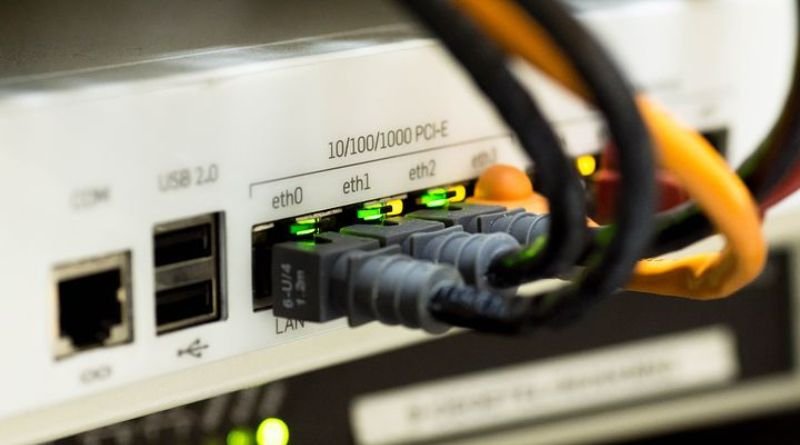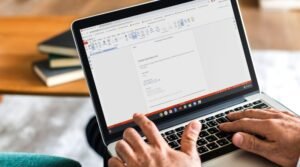10 things you must know to be considered computer literate

These days computers are used in every aspect of our lives, from how we find information, to how we make purchases, to how we entertain ourselves, and more. Unfortunately, not everyone has the time to learn all the ins and outs of using these devices on their own. That’s why you should take advantage of these 10 tips and tricks that you can use immediately to help you get up to speed with your computer literacy. Take a look!
Hold on to your password
Your password is your key to online security. By creating a strong password, you can help protect your online accounts from hackers. Here are a few tips for creating a strong password -Don’t use the same passwords for all of your different accounts; this makes it easier for someone who has hacked one account to hack all of them
- Use long phrases with numbers and symbols that are not easy to guess; make sure you remember the phrase, though!
- Create passwords that don’t use any personal information such as your name or address
- Keep changing up your passwords so people won’t get tired of guessing
The internet does not remember your passwords
You should never use the same password at more than one site, because if one site gets hacked, all of your accounts are now vulnerable. The best way to keep track of your passwords is to use a password manager, which will generate and store strong passwords for you. When creating a new password, make sure it is at least 8 characters long and includes a mix of uppercase and lowercase letters, numbers, and symbols. Avoid using easily guessed words like password or your name.
Never hit update without backing up your data
These days, we rely on computers for just about everything. We use them for work, communication, entertainment, and more. That’s why it’s important to make sure you know how to take care of your computer and keep your data safe. Here are things you should know how to do in order to consider yourself computer literate:
- Never hit update without backing up your data
- Know the difference between a folder and a file
- Don’t download any executable files from email or anywhere else that aren’t from trusted sources
- Use antivirus software and keep it updated
Use two-factor authentication when available
Two-factor authentication (2FA) is an extra layer of security used when logging into websites or apps. When 2FA is enabled, users are required to enter not only their password but also a code that is generated by an app on their phone. This makes it much harder for hackers to gain access to your account because they would need both your password and your phone in order to log in.
Know how to format a hard drive
One of the most basic things you should know how to do is format a hard drive. This will allow you to reinstall your operating system and start from scratch if necessary. To format a drive, you’ll need to open the Disk Management tool in Windows. Once there, right-click on the drive you want to format and select Format. Choose the settings you want and click OK. The process will take a few minutes, but once it’s done your drive will be wiped clean and ready for use.
Backup online as well as offline
Nowadays, it’s not enough to just have your important files stored on your computer’s hard drive. With the rise of hacking and ransomware, it’s become increasingly important to have a backup plan for your digital life. Here are 5 things you should do to make sure your data is safe
- Keep your operating system updated with the latest patches;
- Back up all important documents in multiple places;
- Use encryption;
- Make sure you have an up-to-date antivirus installed;
- Don’t open suspicious attachments or click suspicious links in emails or messages.
Understand what spam is and how it affects you
Spam is a problem for everyone who uses email. It can clog up your inbox, make it difficult to find important messages, and even carry viruses that can harm your computer. To protect yourself, it’s important to understand what spam is and how to avoid it.
If it sounds too good to be true, it probably is.
The internet is a cesspool of scams, so it’s important to be skeptical of anything that sounds too good to be true. If something seems too good to be true, it probably is. There are a few red flags to watch out for that can help you spot a scam.
Don’t talk about hacking on public social media accounts
If you want to avoid being hacked, there are a few things you should never do on social media. First, never post anything personal that you wouldn’t want made public. This includes your address, phone number, and even your birthday. Second, don’t click on links from people you don’t know. These could be phishing scams designed to steal your information. Third, don’t use the same password for all of your accounts.
Learn basic coding techniques before trying anything else
There are basic coding techniques that you should learn before moving on to anything else. These include learning how to code in HTML, CSS, and JavaScript. By learning these basic coding techniques, you will be able to create simple websites and web applications. Additionally, you will be able to understand the basics of how the internet works.








